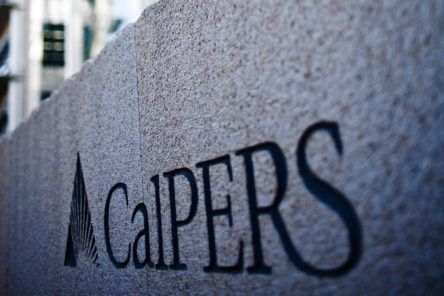Is state Legislature hampering CalPERS, CalSTRS?
 The California Public Employees Retirement System and the California State Teachers Retirement System recently announced that they had exceeded their investment goals by at least 1 percentage point in fiscal 2017-18, with CalPERS citing annual gains of 8.6 percent and CalSTRS reporting 9 percent returns.
The California Public Employees Retirement System and the California State Teachers Retirement System recently announced that they had exceeded their investment goals by at least 1 percentage point in fiscal 2017-18, with CalPERS citing annual gains of 8.6 percent and CalSTRS reporting 9 percent returns.
This came after strong returns in 2016-17 as well for both of the pension giants. But even with CalPERS now reporting $355 billion in assets and CalSTRS $225 billion, both systems have 70 percent or less of funds needed to cover their long-term commitments.
This troubling long-term picture is why the League of California Cities, in a January report, said it expects CalPERS to keep raising rates on local governments for years to come until they become “unsustainable.” CalSTRS, meanwhile, relies on the Legislature to set the rates it charges workers, districts and the state for pension costs – and the bailout the Legislature approved in 2014 that sharply increased what districts in particular must pay has not shored up the system nearly as much as was hoped.
Against this backdrop, CalPERS and CalSTRS are offering hints that they aren’t happy with the Legislature and think it is making their jobs more difficult.
CalSTRS’ chief investment officer, Christopher Ailman, issued a statement about the good returns that downplayed their significance: “We will rank high compared to similar funds, but it is only one year. We need to repeat that performance year in and year out, on average, over the next 30 years.”
But in an interview with the Private Equity International website that was posted July 2, Ailman elaborated on his view of investment gains. He did so in a way that challenged claims made by many Democratic lawmakers and pro-pension groups such as the Californians for Retirement Security that state pensions’ biggest problem was the Wall Street crash of a decade ago.
CalSTRS exec: Don’t blame investment results
“Ailman points out it’s often not the investment results that have led to the underfunding, it’s either poor management of liabilities or a lack of contributions,” the article said.
“Asked whether this keeps him up at night, he says he sleeps like a baby – wakes up and screams every three hours. ‘We pay out half a billion dollars a month in benefit payments, more than we bring in.’”
In the interview, Ailman also complained about Assembly Bill 2833, a state law that took effect last year that requires pension systems to disclose more information about expenses and fees related to their investments. He said the law ignored existing disclosure requirements and that it had caused CalSTRS to miss out on lucrative opportunities.
He said the “extra rules and extra issues” were having unintended but negative effects.
“We now have a situation in the state of California where CalPERS and CalSTRS have less invested in Silicon Valley than the Dutch, Asian and Middle Eastern sovereign wealth funds. Fundamentally, as a native Californian I think that’s just so wrong, but I can’t change people’s minds. It is what it is now,” Ailman told Private Equity International.
CalPERS knocks bill to monitor divestment laws
CalPERS’ concerns about legislative actions are also plain, if more muted. The Pensions & Investments website reported July 18 that the pension fund opposes Senate Bill 783, which already passed the Senate and now is before the Assembly. It would set up a review body to analyze how CalPERS and CalSTRS had complied with state laws directing the pension funds to divest from certain industries. CalPERS says this review panel would duplicate the work of pension staffers.
Given that CalPERS and CalSTRS at times have resisted the Legislature’s attempts to micromanage their portfolios, SB783 could be seen as giving teeth to lawmakers’ attempts to have a bigger say in investments.
The debate over SB783 comes as CalSTRS faces demands from activists to divest in a new corner of the private sector: companies which run private prisons. Other recent calls for divestment have targeted assault-rifle makers; finance companies that helped with construction of the Dakota Access Pipeline; and fossil-fuel companies.
Chris Reed
Chris Reed is a regular contributor to Cal Watchdog. Reed is an editorial writer for U-T San Diego. Before joining the U-T in July 2005, he was the opinion-page columns editor and wrote the featured weekly Unspin column for The Orange County Register. Reed was on the national board of the Association of Opinion Page Editors from 2003-2005. From 2000 to 2005, Reed made more than 100 appearances as a featured news analyst on Los Angeles-area National Public Radio affiliate KPCC-FM. From 1990 to 1998, Reed was an editor, metro columnist and film critic at the Inland Valley Daily Bulletin in Ontario. Reed has a political science degree from the University of Hawaii (Hilo campus), where he edited the student newspaper, the Vulcan News, his senior year. He is on Twitter: @chrisreed99.
Related Articles
CA Dems Always Blame Wall Street
Steven Greenhut: What’s wrong with California? The answer is pretty obvious to any sane person. It’s a gorgeous state, great
High-speed rail incompatible with current tracks
One reason the American South lost the Civil War was it had numerous incompatible railroad track systems, requiring supplies to
Vergara appeal decision: Nixon goes to China for Jerry Brown?
To an astounding degree, prominent California Democrats have so far avoided substantive comment on Judge Rolf Treu’s landmark — but




